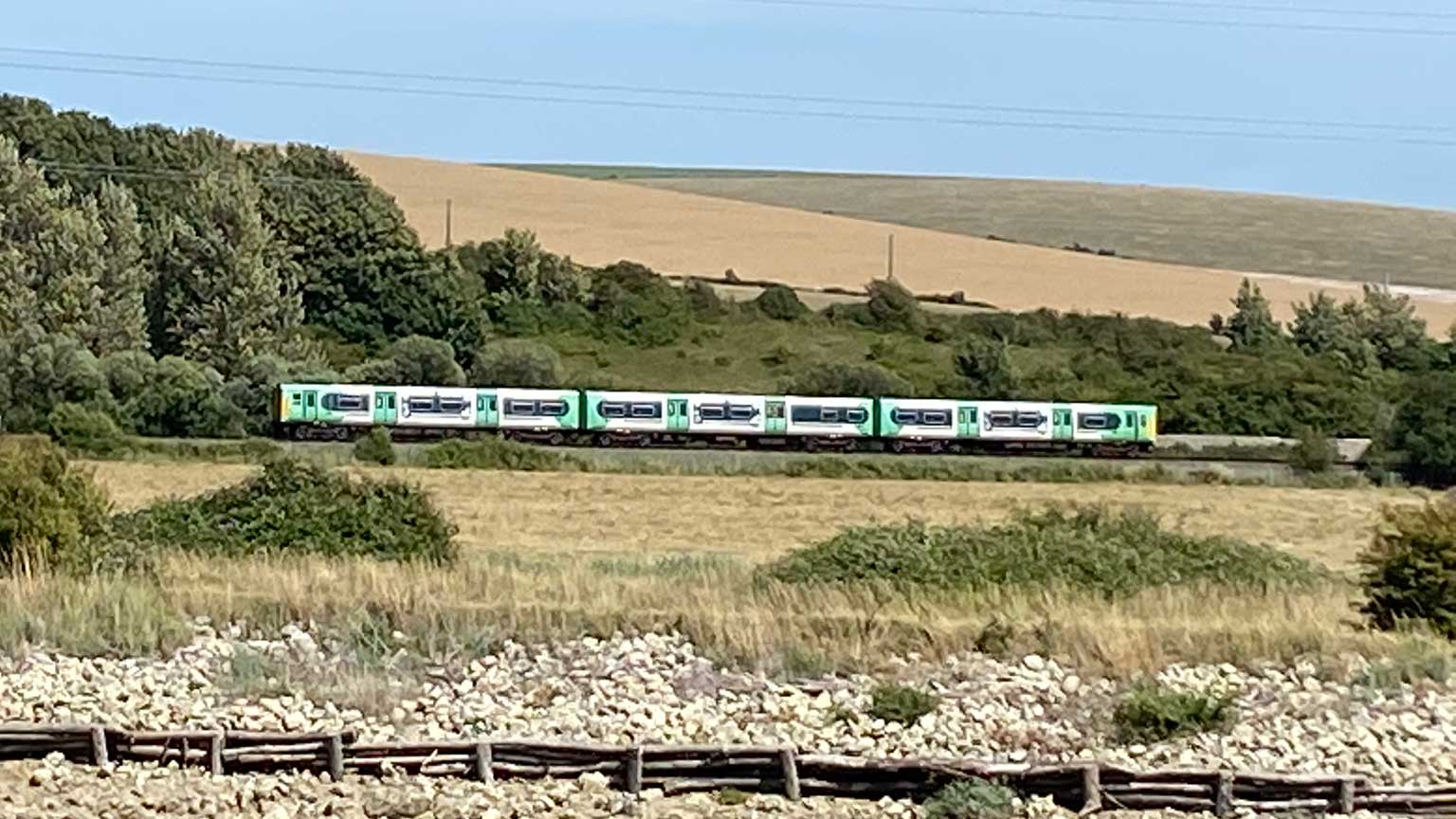
| 22 July 2020
Sitting here, onsite at King’s London and feeling so delighted at a wonderful and unplanned conversation that has just happened. For me, now, this is rare and beautiful. It is something I miss and I am thinking more and more about how I can reintroduce this into my life.
When my line manager first asked me what I missed most in early lockdown I refused to answer, I knew it was probably denial and boy it was. When I later reflected upon this, I came to feel the sadness I was avoiding. What sprung to mind was the district line, three carriage train that I kept seeing and hearing yet no longer boarded. In lockdown whilst out walking, we would often be able to look along the Ouse from Newhaven to Lewes and I’d see that train over and over again.
The train that connected me to my life in many ways. I’d take it numerous times a week, stop at the wonderful Runaway café at Lewes station, get coffee and snacks, chat, meet, often bump into someone as I went on my way. Maybe I’d reflect, maybe I’d have a focused piece of work to write or maybe if I’d bumped into Penny or Pete, I’d enjoy a lovely catch up and reconnect…
It was thinking about this, and then thinking about where that train would take me; London, Bristol, Sheffield, Wales, Leeds and many more in the last year that I started to think about the themes of this blog, and last weeks’ presentation at the Convenzis NHS Workforce conference, of disruption, disorientation and dislocation.
Just looking back at my March expenses showed how disrupted things had been for me. One minute I was breakfasting in Leeds, lunching in Wales and sleeping in London and then, stop. Nothing to put in. The relentless travel stopped. As did contact with so many of my clients as they turned to face something unprecedented and extreme. We, in my family, were home, all of us, all the time. Wonderful, difficult and everything in between, we and all of us were hugely disrupted.
And if I was not to regularly leave the South Coast, home and then return where do I orientate myself to? I am not going anywhere in the physical sense, yet I still orientate my working life to something, so what is that then? If it is not the locations of our offices (Sheffield, London, Bristol) that hold a shape of my organisation for me then what does? I truly felt disrupted, disorientated and dislocated and it was truly strange.
Chimamanda Ngozi Adichie brilliantly exhorts us not to accept the myth of a single story and I know my experience is different in so many ways to others. Yet when I hear stories of massive redeployment, planning processes being suspended, teams not seeing each other for weeks, physical spaces being redesigned, one way systems and zones being implemented, services being affected and so on I do believe we all have had some experience of the three dis-‘s mentioned above. And so, what? What has this meant for us and what do we do, therefore?
In my talk last week, I readily acknowledged that I do not know the answer. As yet I am not even sure what the question is. For me this speaks so clearly of Heifetz’ work around adaptive challenges; the complex and uncertain realm of work that is hard to define and so important to do. I do know that a vital first step is to begin by finding ways to connect, find ourselves and our teams and share our experiences and stories. In doing so we relocate ourselves in our work and our shared purpose and focus. The way forward can and will emerge when perhaps we are not looking for it, rather stabilising ourselves through being with others in this uncertain and strange time.
We can reconnect with each other and share acknowledgement of the great successes of the last four months, the huge achievements and the very real stress and pain and struggle of it all. So much has been done, and why? Because our common humanity meant we had to do what needed to be done. And we would again of course, and now, we have what a colleague (who I’d just met) described to me this morning as our ‘golden time’. A time to connect, focus on our adaptive challenges and work for the change that we know is possible.
Though not all at once and yesterday! We (I at least) remain deeply unsettled and there is much that will disturb us all further. Connection and purpose are vital and cannot be sustained without self-care and proper rest. In driving up here today I had two hours to connect with myself, to relocate myself in my narrative which is something I realise I have missed and need. How we find ways to do the work that needs to be done and ways to be that enable us to do that, is an adaptive challenge indeed! One that we can face together, learning, failing and succeeding all along the way.
